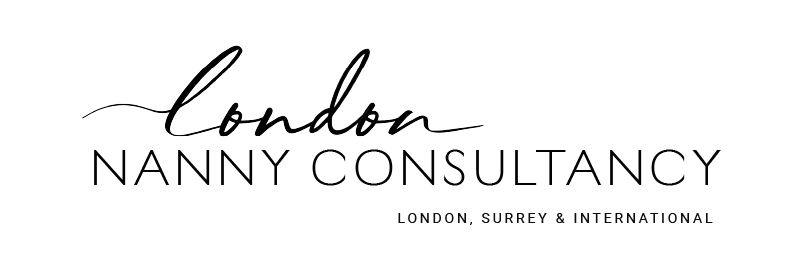Frequently Asked Questions
Below you will find a selection of most frequently asked questions relating to the recruitment of Nannies, Maternity Nurses, Governesses and private PAs. Please do get in touch if you require more information.
What is a Nanny and what type of Nannies do you place?
A Nanny is a professional childcarer, often formally qualified, who provides care for your child/children in your own home and in a one-to-one setting. A professional career Nanny will be fully capable of providing sole charge of your child/children, will be well-versed in all aspects of child development and able to arrange and encourage age-appropriate activities which stimulate the child’s overall development, as well as overseeing your child’s physical needs are all being met. London Nanny Consultancy specialises in placing professional career nannies all of whom are experienced and mostly also formally trained in childcare or similar. We place both live-in and live-out nannies (country/location dependent), permanent and temporary, full-time (40-70 hours a week) and part-time (less than 40 hours a week).
Nannies can work on a live-in or live-out basis, depending on whether you would like them to live in your home. Live-in nannies need to be provided with their own bedroom & bathroom within the family home, or with a form of separate accommodation (separate flat, annexe with a separate entrance or similar). This second option tends to be preferred amongst nannies (but also parents), as it gives everyone more privacy and can ensure the nanny might then stay with the family long-term. Live-out nannies (also called daily nannies) commute to their place of work on a daily basis and therefore tend to work shorter hours (8-10 hours a day). A nanny can either work on a sole charge basis, together with parents or another nanny – shared care, or as a mixture of sole & shared care.
What are typical Nanny duties & working hours?
Nannies will be responsible for all ‘nursery duties’, i.e. everything related to the children – from ensuring all their physical needs are met (feeding, cooking/preparing their meals, changing, dressing, personal hygiene, nap times/bedtime) to attending to their room and belongings (laundry of children’s clothes, ironing, shopping for clothes and toys, tidying of their bedrooms and play areas). A professional Nanny’s main focus is however child development & education – they will arrange and encourage age-appropriate stimulating activities, teach manners, supervise homework, teach children English or another language; live-in and International Nannies will travel with families and research travel locations for child-friendly activities, etc. Duties can vary slightly in a fully staffed household and a professional nanny will in general not be responsible for any heavy-duty cleaning or other housekeeping duties.
Working hours can vary based on individual families and full-time positions typically range from 5-6 days a week/10-12 hours a day to positions where a 24-hour cover might be required, either 5 or 6 days a week. Live-in nannies usually tend to provide 2 evenings of babysitting a week (included in their salary), whereas live-out (or daily) nannies need to be paid extra for any evening babysitting.
Live-out nannies tend to work 8-10 hours a day, whereas live-in nannies’ hours usually range from 10-12 hours a day.
What salaries do Nannies earn?
Salaries vary depending on individual job requirements and the level of experience & qualifications of the Nanny, with more experienced nannies understandably commanding higher salaries.
Nanny Salary Guideline:
Live-in, London & Surrey: from £400 net per week (app. £500 gross pw)
Live-out, London & Surrey: from £450/£500 net per week (app. £570/£670 gross pw)
International: from £500 net per week (app. £670 gross pw) for positions in Europe, going up to £1000 – £1500 net per week for positions in the Middle East and Russia.
Salaries for nannies traditionally tend to be quoted in weekly net amounts, however, there is a recent trend in the industry to quote gross weekly/monthly and annual salaries, in line with other professions. In addition to their salaries and having their income tax, NI & pension contributions covered by the employing family (in the UK and local equivalent internationally), nannies are also entitled to a range of benefits, such as annual leave, sick leave and pay, health and/or travel insurance, food allowance (for live-in nannies), nanny car and/or transport allowance, etc.
What is an International Nanny?
An International Nanny is a Nanny employed by a family residing outside the UK; these positions often include frequent international travel and flexible working hours. An International Nanny needs to be provided with accommodation, either at the employer’s house or at a hotel or other suitable independent accommodation for her private use during her time off. International nannies need to have all their travel expenses covered by their employer (including interview/trial travel & accommodation expenses), appropriate medical & travel insurance arranged, as well as any work permit and visa obtained by the employing family. At London Nanny Consultancy, we work with families from all over the world and typically have clients looking for professional English speaking nannies & governesses in locations such as Monaco, Dubai, Abu Dhabi, Saudi Arabia, Oman, Kuwait, Cape Town, Bermuda, Cayman Islands, Moscow, Russia, Singapore & Hong Kong, Paris, Geneva, Zurich, and many others.
What is a Rota Nanny?
Rota nannies are becoming more and more popular and in demand with busy fully staffed households worldwide to ensure a continuous non-stop cover is provided in terms of childcare. In practical terms, this means a family might employ two nannies who each work on 2 weeks on/2 weeks off rota pattern, often providing a 24-hour cover when on duty (this tends to be the most common arrangement, however other might be possible, such as 1 week on/1 week off and similar).
Rota nannies often tend to work internationally and/or are required to travel with their employer; when on duty they are provided with accommodation. Accommodation off duty can either be the nanny’s own or again arranged by the employer for the two nannies to share.
Salaries for rota nannies vary and are usually quoted as a fixed monthly amount so that a stable income for the nanny is ensured. Alternatively, especially when it comes to short-term arrangements, salaries might be quoted just for the weeks worked (and will have to reflect the amount of hours worked, i.e. a 24-hour cover).
What is a Governess and what are the working hours, duties & salaries?
A Governess is a professional and often university educated childcare professional whose sole focus is the educational development of the children they are hired to look after. Unlike nannies who can look after children of any age, including babies, governesses specialise in caring for older children – pre-school and school aged children. Their focus is on overall child’s development but they will not be responsible for attending to the child’s physical needs and will therefore not perform duties such as cooking meals, bathing, washing children’s laundry, tidying their rooms, and similar. Governesses are often hired to help children with their school work, teach languages, liaise with schools, manage children’s academic and social diary or arrange private tutors for specialised subjects and school entrance exams.
Working hours tend to be shorter than for nannies, this however can be very individual and a great deal of flexibility is often required, especially with international families.
Governess Salary Guideline:
London & Surrey: £600 – £1200 net per week (live-in and live-out, depending on experience, hours & duties required; app. £800 – £1600 gross pw).
International: £800 – £1500+ net per week
What is a Maternity Nurse and what are the working hours, duties & rates?
A Maternity Nurse is a newborn baby care specialist (non-medical), who comes to your home shortly after you have had your baby and offers a 24-hour cover, either 5 or 6 days a week. The main role of a Maternity Nurse is to assist new parents with all aspects of newborn baby care and guide and support them with whatever issues they and their new baby might be experiencing – general baby care, breastfeeding & bottle feeding, establishing a routine if required, looking after the new mum so that she can recover after giving birth, washing & ironing of baby’s clothes, bathing, etc. Often experienced maternity nurses are able to offer advice and support with common issues such as colic, reflux, and similar.
Maternity nurses will work on a live-in basis and their placements are temporary in nature – once babies are around 3 or 4 months old, a Nanny usually takes over. If your circumstances allow and you would like to have the support of a Maternity Nurse for longer, i.e. 4-6 months or so, and have the 24-hour help, some of them are happy to stay in placements longer term too. Although Maternity Nurses are on call for 24 hours, they also need a few hours’ sleep and rest. Some Maternity Nurses only provide a night cover – Night Maternity Nurse; usually from 7pm to 7am.
Rates vary depending on experience, location, and whether they are looking after a single or multiple babies: £200/£250+ gross per 24 hours covered in the UK, £250/£300+ gross per 24 hours covered overseas (for a single baby, rates for multiples are higher).
Maternity Nurses are self-employed and set their own rates; they are responsible for their own tax & NI contributions.
What is a Private PA and what are the working hours, duties & salaries?
A Private PA (Personal Assistant) is a member of the household, often fully staffed, whose main duties include: all administrative support and correspondence, overseeing household staff and their work schedules and dealing with staff admin (often in multiple properties), travel & diary management – bookings, reservations, managing household bills & expenses, basic book keeping, managing purchases, shopping/online shopping, research, event planning, personal errands; international travel might be required too. Working hours vary from part-time to full-time and on a live-in basis, mostly however PAs work on a live-out basis or remotely. Hiring a reliable and organised Private PA will really make a difference to any busy household and will take the stress of many a situation for the Principal – be it organising an important event, shortlisting suitable properties for viewings or organising a last minute trip overseas.
Sometimes a Nanny looking after school-aged children might be able to and interested in offering some PA support to her employers – occasionally there can be Nanny/PAs available too. The extra duties will have to be reflected in the nanny’s salary.
PA Salary Guideline:
From £30/35k pa – £80k+ pa (depending on experience, location, working hours & duties required)
What is the Recruitment Process at London Nanny Consultancy?
From the Client’s point of view, we focus on attracting the best possible candidate for your role – first we listen to you and understand your needs, then we start working on your search by contacting suitable candidates on our register and attracting new candidates by advertising your role. We are very selective in our recruitment process and will only present you with candidates that we believe meet your criteria, not only in terms of experience and qualifications, but their personality too. We will most likely not send dozens of CVs for you to review as it would be rare to find many suitable high-calibre candidates, and we will not be sending you just anyone for the sake of it.
From the Candidate’s point of view, once you have applied for one of our roles and have sent us your CV, we will be in touch if we believe we can help find you a new position, and we will finalise your registration process. This means you will have to complete our detailed Application Form, provide us with your ID documents, qualifications, relevant certificates including a First Aid certificate and a current up-to-date DBS check (formerly CRB check; please enquire about how to update these). You will also need to provide at least two verifiable references from previous employers. We will then schedule an interview to determine your suitability and once all paperwork and checks have been completed, we will be able to start putting you forward for our positions, current and future ones.
What support do you offer to Clients & Candidates?
You can rely on our professional and personal approach. Once you have registered your role with us and we have discussed your requirements and agreed to start the search, received CVs from us, we will liaise with you to arrange interviews (phone/FaceTime/Skype initially, or face to face depending on location) and will support you through the hiring process by negotiating the terms of the Candidate’s employment with you. We will also assist with an employment contract (we can send a template for you to use or we can draft the contract for you), help with organising travel arrangements (if applicable), and any other admin matters related to the placement. We also offer post-placement support and will be in contact with you after the placement commences to make sure things are going as expected; we also offer a Guarantee period and this will depend on the type of placement.
The same goes for our Candidates – we are here to listen and to help advance your career – you can expect advice and support from us which goes beyond the initial interview process, and you can rely on us to work with you to make sure you are happy in your new position.
How it works
Get in Touch
We Discuss Your Needs
We Find The Right Match
Contact us today to see how we can help – whether you are looking for a new member of your household or dreaming of that perfect new job, get in touch.


